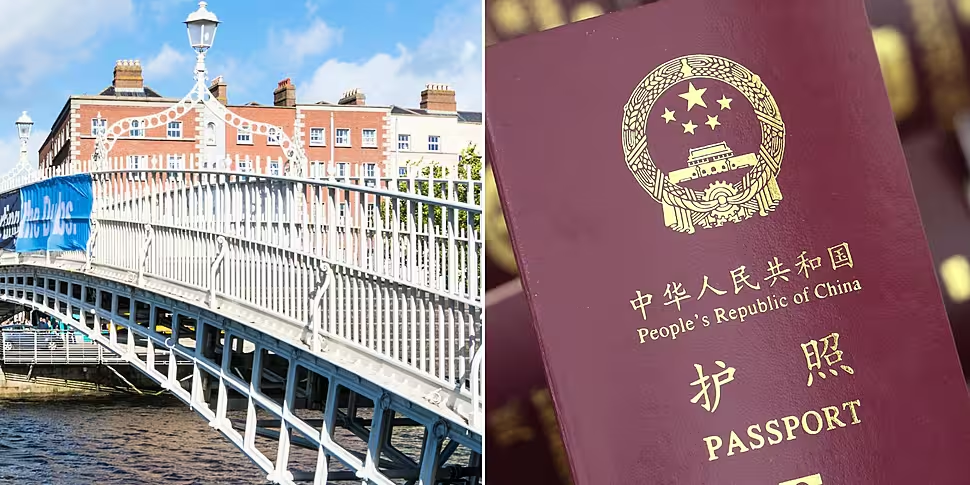A programme which effectively sells Irish residency to international millionaires has seen a surge in applications from China.
Applications to the Immigrant Investor Programme from China have ballooned from 243 last year to 785 since the start of this year.
It comes amid mounting speculation that the programme could be refined or potentially scrapped.
The Irish Times Current Affairs Editor Arthur Beesley told The Pat Kenny Show how it all works.
"If they have personal wealth of at least €2 million, they can make an investment for €1 million in an approved Irish company or investment fund," he said.
"Alternatively they can invest €2 million in a real estate investment trust... or they can make a €500,000 endowment be it for education, arts, sports, health or culture."
'Word spread'
Mr Beesley said the figures have more than tripled this year alone.
"The latest figures from the Department of Justice show that applications have surged this year from China," he said.
"The number of Chinese people seeking such investments has more than trebled since the start of the year to 785.
"In 2021... there were 243 applications from China to participate.
"In the first nine months of this year, there were 785 - so that's more than a tripling in nine months.
"A lot of that is attributed by people who know about these matters; it seems that word spread amongst the advisers who help people to make applications and who broker applications for this scheme.
"It seems that because the scheme has been under formal review by the Government, word spread that the Government was going to in fact scrap the scheme - thereby shutting the door".
Three-year residency
He said rolling investments could see people renew their residency.
"You have to put the money in for three years; so, if your money is in here well then you can be resident here for three years," he said.
"If the thing rolls over, and another investment can be made, one imagines that you can stay longer in that case".
He said the actual details around the investments are unknown.
"One of the problems here is that we don't know who the beneficiaries are.
"It's the practice of the Department of Justice not to say where the money goes, therefore it's very difficult to actually gauge the actual merits of the investments made," he added.









